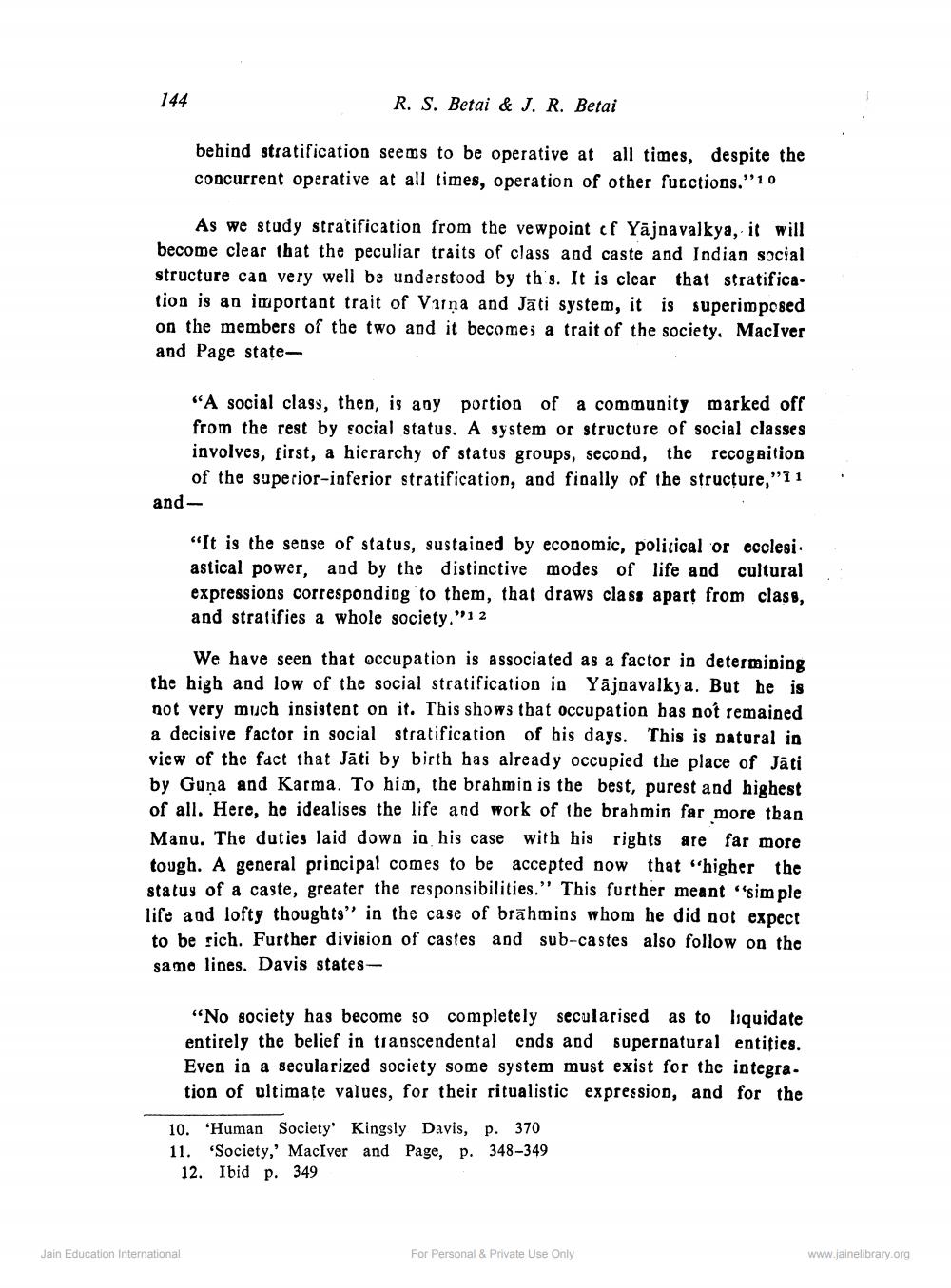________________
144
R. S. Betai & J. R. Betai
behind stratification seems to be operative at all times, despite the concurrent operative at all times, operation of other fucctions."10
As we study stratification from the vewpoint of Yājnavalkya, it will become clear that the peculiar traits of class and caste and Indian social structure can very well be understood by th's. It is clear that stratification is an important trait of Vaiņa and Jāti system, it is superimposed on the members of the two and it becomes a trait of the society. MacIver and Page state
“A social class, then, is any portion of a community marked off from the rest by social status. A system or structure of social classes involves, first, a hierarchy of status groups, second, the recogaition
of the superior-inferior stratification, and finally of the structure,"11 and
"It is the sense of status, sustained by economic, political or ecclesi astical power, and by the distinctive modes of life and cultural expressions corresponding to them, that draws class apart from class, and stratifies a whole society."1 2
We have seen that occupation is associated as a factor in determining the high and low of the social stratification in Yajnavalkya. But he is not very much insistent on it. This shows that occupation has not remained a decisive factor in social stratification of bis days. This is natural in view of the fact that Jāti by birth has already occupied the place of Jāti by Guna and Karma. To him, the brahmin is the best, purest and highest of all. Here, he idealises the life and work of the brahmin far more than Manu. The duties laid down in his case with his rights are far more tough. A general principal comes to be accepted now that "higher the status of a caste, greater the responsibilities." This further meant "simple life and lofty thoughts" in the case of brāhmins whom he did not expect to be rich. Further division of castes and sub-castes also follow on the samo lines. Davis states
“No society has become so completely secularised as to liquidate entirely the belief in transcendental ends and supernatural entitics. Even in a secularized society some system must exist for the integra. tion of ultimate values, for their ritualistic expression, and for the
10. 'Human Society' Kingsly Davis, p. 370 11. "Society,' MacIver and Page, p. 348-349 12. Ibid p. 349
Jain Education International
For Personal & Private Use Only
www.jainelibrary.org




